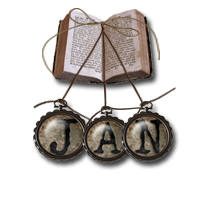FEATURE BOOK OF THE WEEK
BRUISER
by Neal Shusterman
"There’s a reason why Brewster can’t have friends – why he can’t care about too many people. Because when he cares about you, things start to happen. Impossible things that can’t be explained. I know, because they're happening to me."
When Brontë starts dating Brewster “Bruiser” Rawlins – the guy voted “Most Likely to Get the Death Penalty” her twin brother, Tennyson, isn’t surprised. But then strange things begin to occur. Tennyson and Brontë’s scrapes heal unnaturally fast, and cuts disappear before their eyes. What at first seems like their good fortune turns out to be more than they bargained for…much more.
A Word From The Author...
When I was a kid, I wanted to be everything. A writer, an actor, a doctor, a rock star, an artist, an architect, and a film director. I had a teacher who said "You can't do that ? you'll be a jack of all trades and a master of none!" But I had it worked out: I'd be a jack of seven trades, and master of three.
Then, in ninth grade I had an English teacher who really made a difference in my life. She saw my love of writing, and challenged me to write a story a month for extra credit. Since I desperately needed extra credit in her class, I took her up on the challenge, and by the end of ninth grade, I really began to feel like a writer. That's when writing emerged above all my other interests as my driving passion.
When I was sixteen, our family moved from Brooklyn, New York, to Mexico City, and I spent my last two years of High School there. Having an international experience changed my life, giving me a fresh perspective on the world, and a sense of confidence I might not have had otherwise.
In college (UC Irvine) I wrote a humor column for my school paper, and during the summers worked as a camp counselor. I quickly got to be known as the camp storyteller. Each night I would come up with stories to tell - and my best audience was teenagers. That's what really got me into writing for teenagers ? and my early novels, such as "The Shadow Club" and "The Eyes of Kid Midas" began as stories I told at camp Anawana (Yes, it was really called that!)
I have to admit, I never gave up being a "jack-of-all-trades" entirely. I write scripts for film and TV, (Such as "Pixel Perfect" for The Disney Channel) and games, too (such as the "How to Host a Murder" games). Even my novels don't stick to a single genre -- I like to explore them all, hoping to learn and grow with every story I write.
I consider myself very lucky to have a career doing what I love. Of course it's a constant challenge to come up with stories that are original, meaningful, and capture the attention of readers. When I sit down to write, I always ask myself. "What is this book adding to the world? Why is it WORTH writing." Writing a good story is only the first part of it. I want my stories to resonate. I want the reader to not just read the words, but to FEEL the ideas and questions echoing deep inside. I don't like giving answers, because the only questions worth asking don't have simple answers. I prefer to ask questions that will challenge you to think, and see the world - and your own life - in fresh ways. The way I see it, a book should be a powerful experience. It should make you see new colors you never imagined existed - but now that you've seen them, you can see them everywhere.
I've come to the conclusion that writers are a lot like vampires. A vampire will never come into your house, unless invited -- and once you invite one in, he'll grab you by the throat, and won't let you go. A writer's much the same -- feeding on the speed of your heart as it races; feeding on your tears and your sighs; feeding on your turmoil, as well as feeding on your peace. I suppose this is why I write -- because I want to affect people -- somehow change them for the better. Most writers, deep down have some hidden desire to change the world. They want to paint a picture of the possibilities -- to show people the wonderful things that are possible out in world, or just within ourselves. Or perhaps to warn us of the terrible things that are also possible out in the world... and within ourselves. I often think about the power of the written word. Being a writer is like being entrusted with... or, more accurately stealing the power of flames, and then sling-shotting it into the air to see who catches fire. I think writers have a responsibility not to launch these fireballs indiscriminately, although occasionally we do. Still, what a power to find yourself responsible for, because words can change the world. I've always felt that stories aimed at adolescents and teens are the most important stories that can be written, because it is adolescence that defines who we are going to be. That's the time when we chose paths for ourselves that are going to shade and define the rest of our lives.
There were many books that had a powerful influence on the the things I thought about, and how I made sense of the world. I distinctly remember when I was ten, that my parents were late for picking me up at summer camp. Being the last kid waiting to get picked up, and with nothing else to do, I went back into the cabin, and climbed on the rafters, looking for trouble... but instead found a dust-covered copy of Jonathan Livingston Seagull, that appeared to have been there since the beginning of time. I opened the book, began reading, and was swept away by the story of the seagull in search of perfect flight. I read the book cover to cover, and the second I was done, my parents arrived -- it was as if the book was left there just for me! Around the same time I read Charlie and the Chocolate Factory -- another book that influenced me. I remember being awed by the fact that someone had actually thought of a story that brilliantly imaginative. I remember wishing that I could create something as imaginative.
My own children are a constant source of material, support, and editorial suggestions. I have four wonderful kids who fill out the core of my life, and keep me balanced. Writing is, after all, about taking your characters and challenging them to grow by throwing them off-balance. All the more reason for a writer to find some sense of balance in his or her own life. Of course our home is quite often a madhouse, but that's okay, because life is all about finding wondrous moments in the mayhem. And the same can be said for writing! (Retrieved from author
website)


















